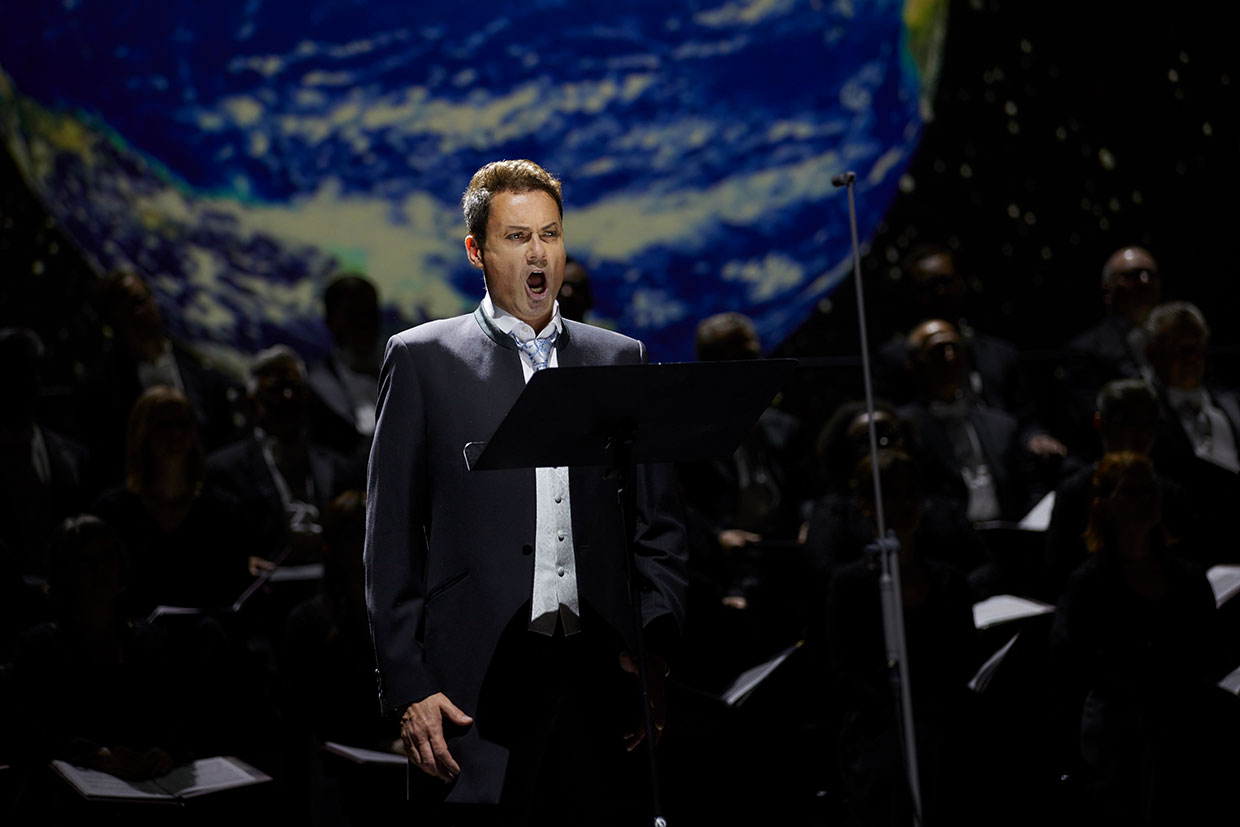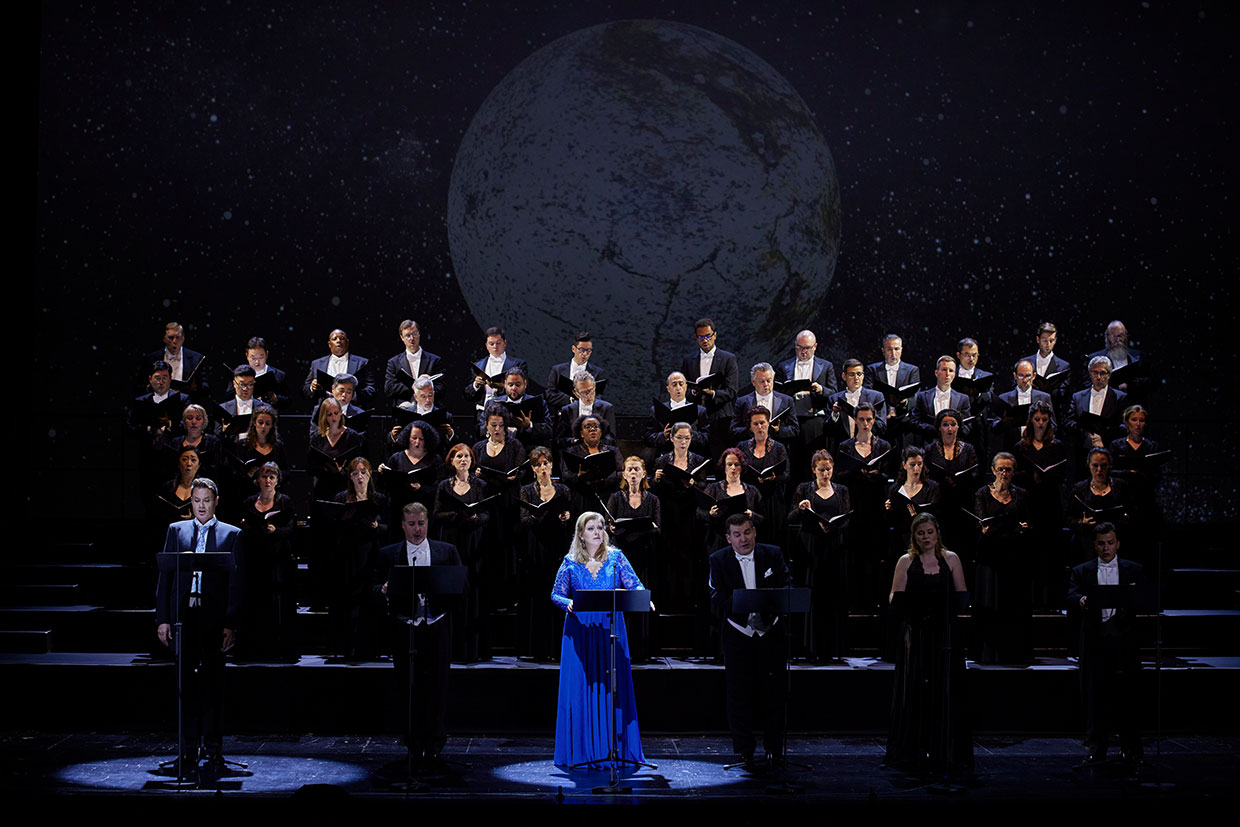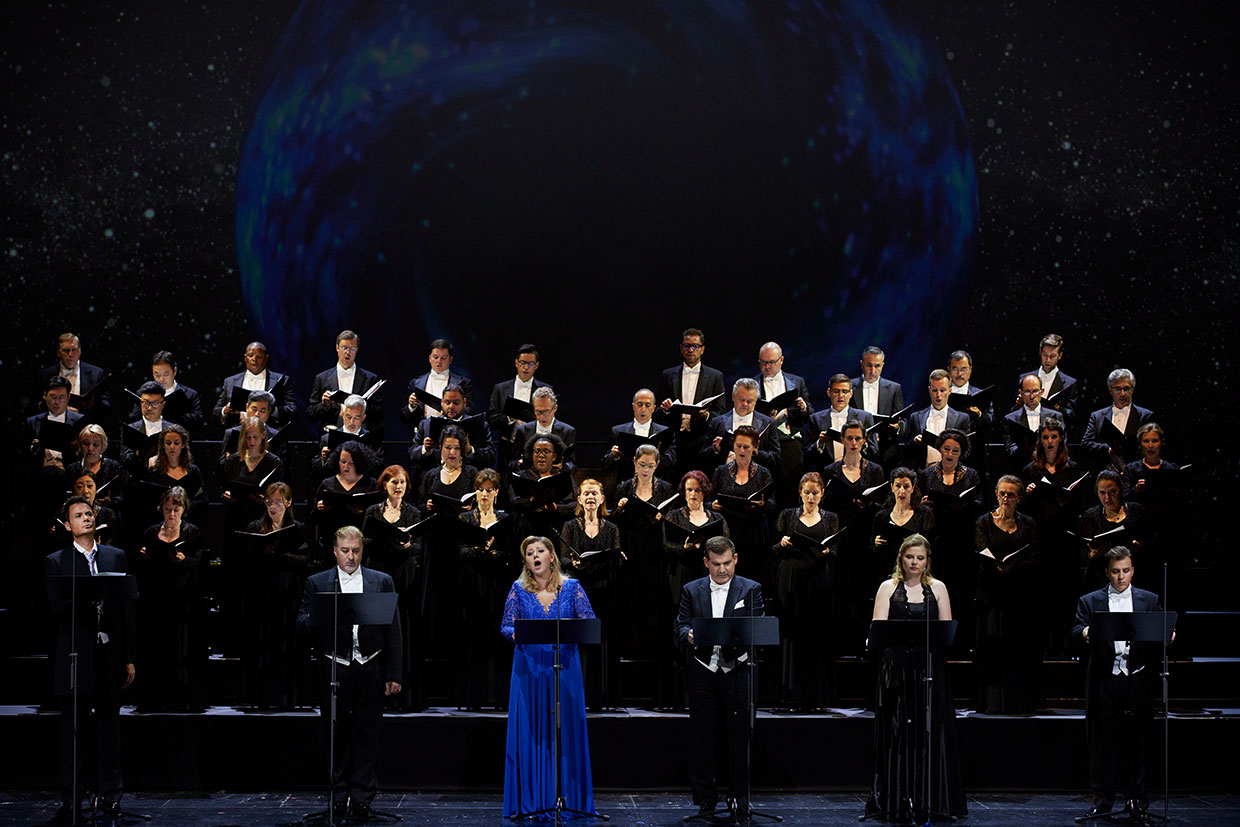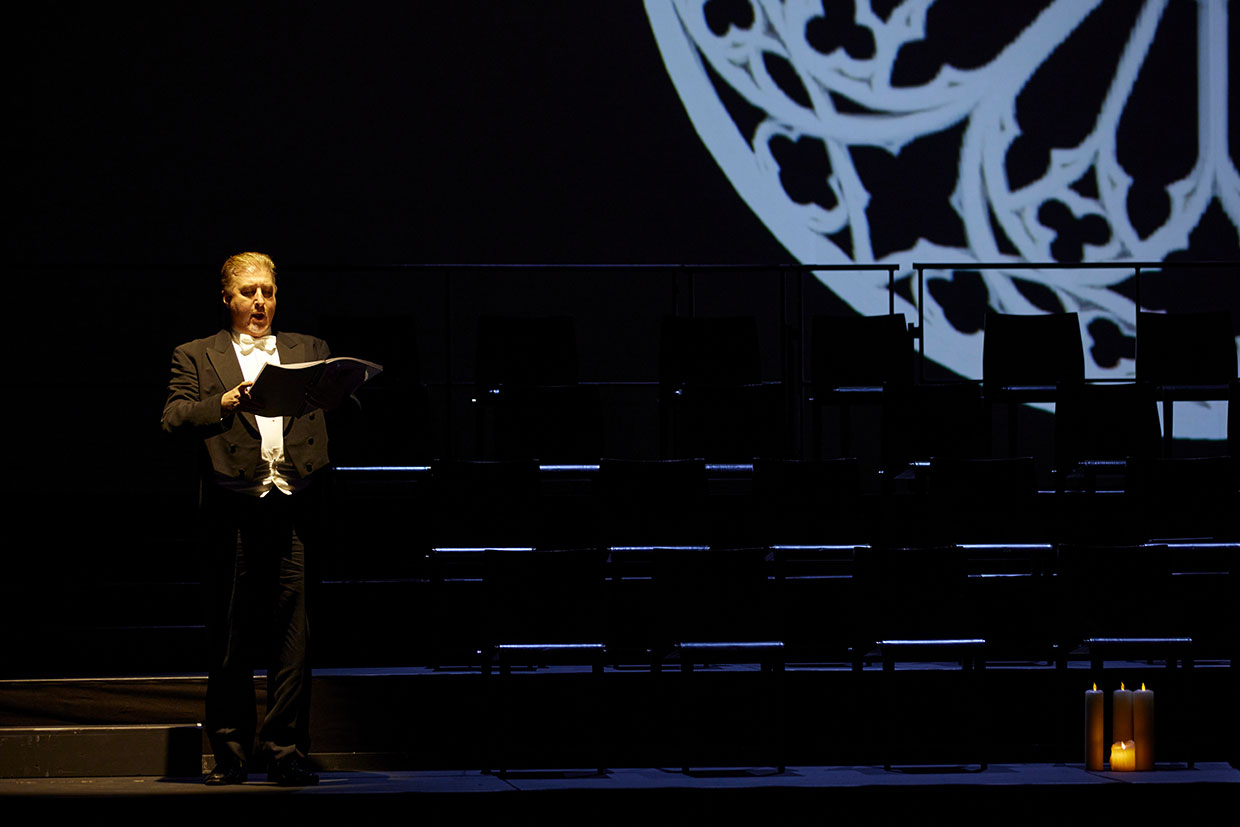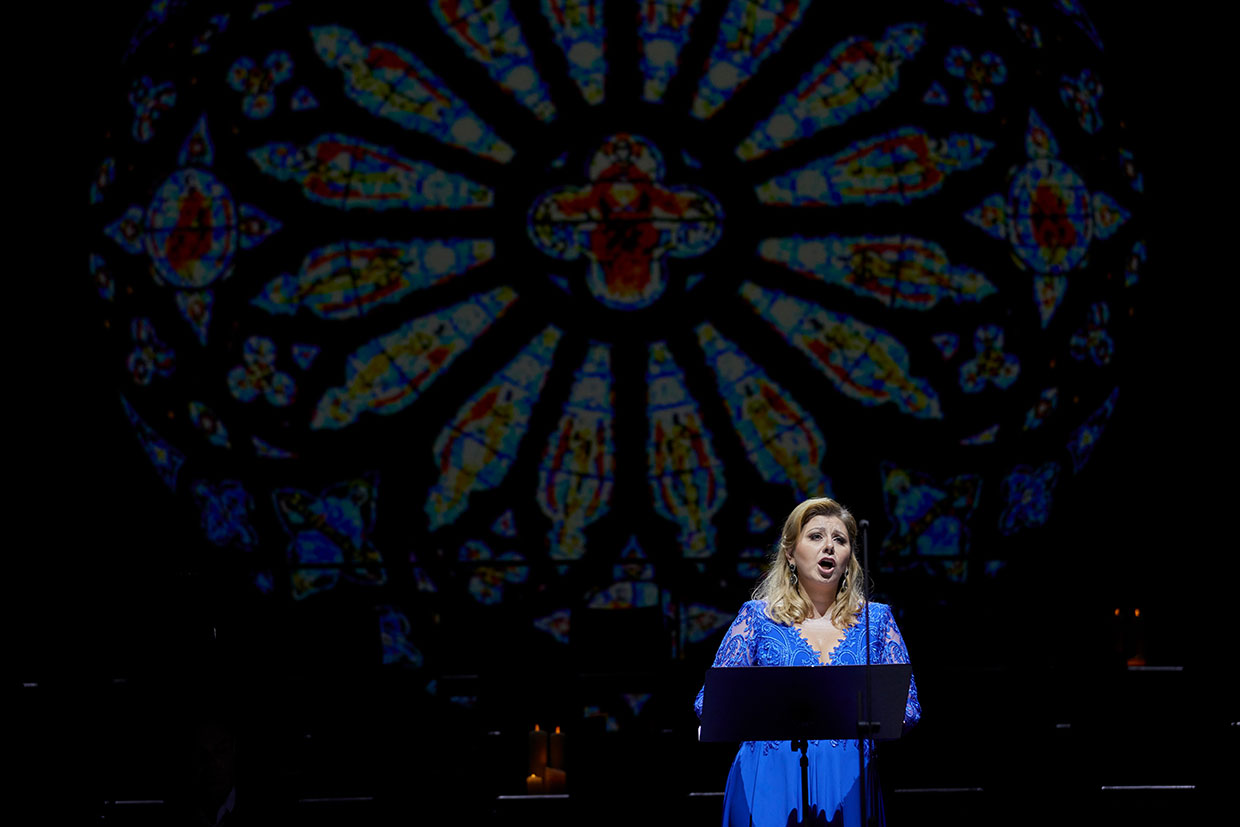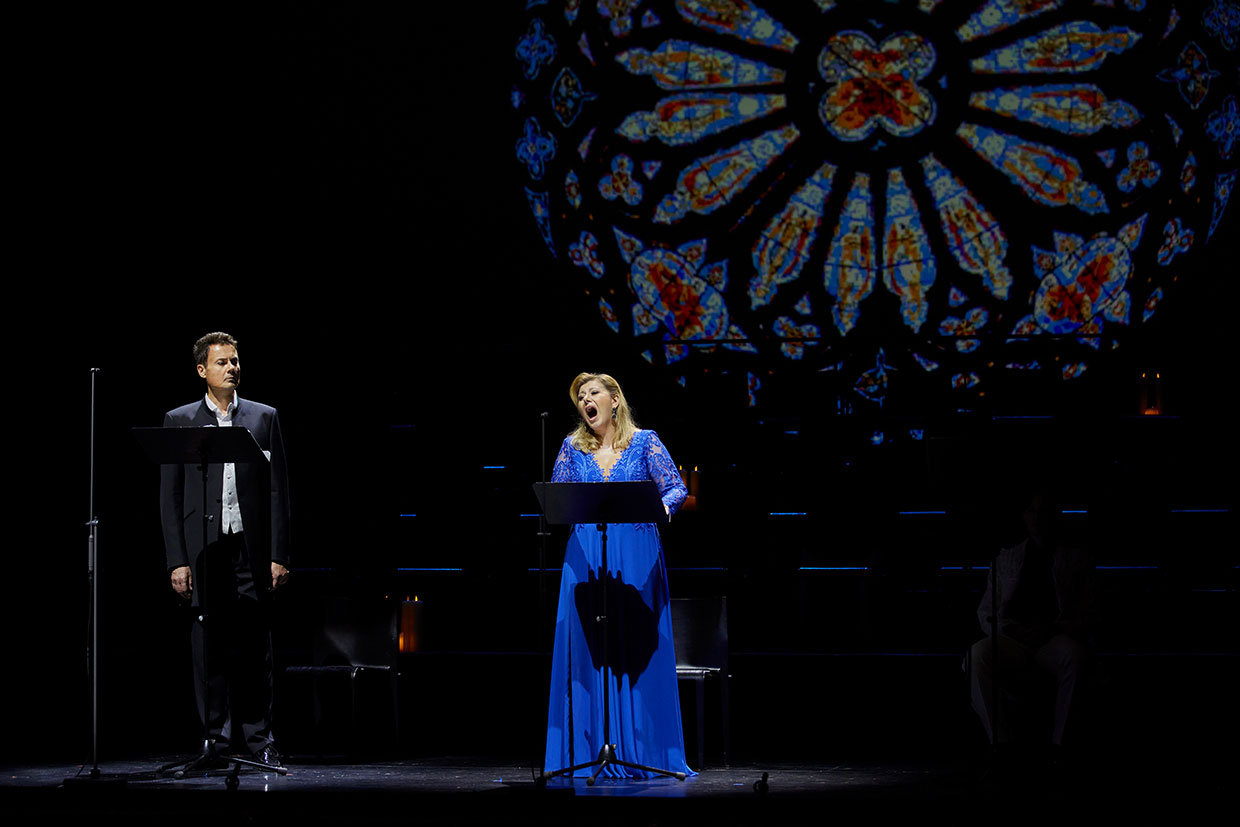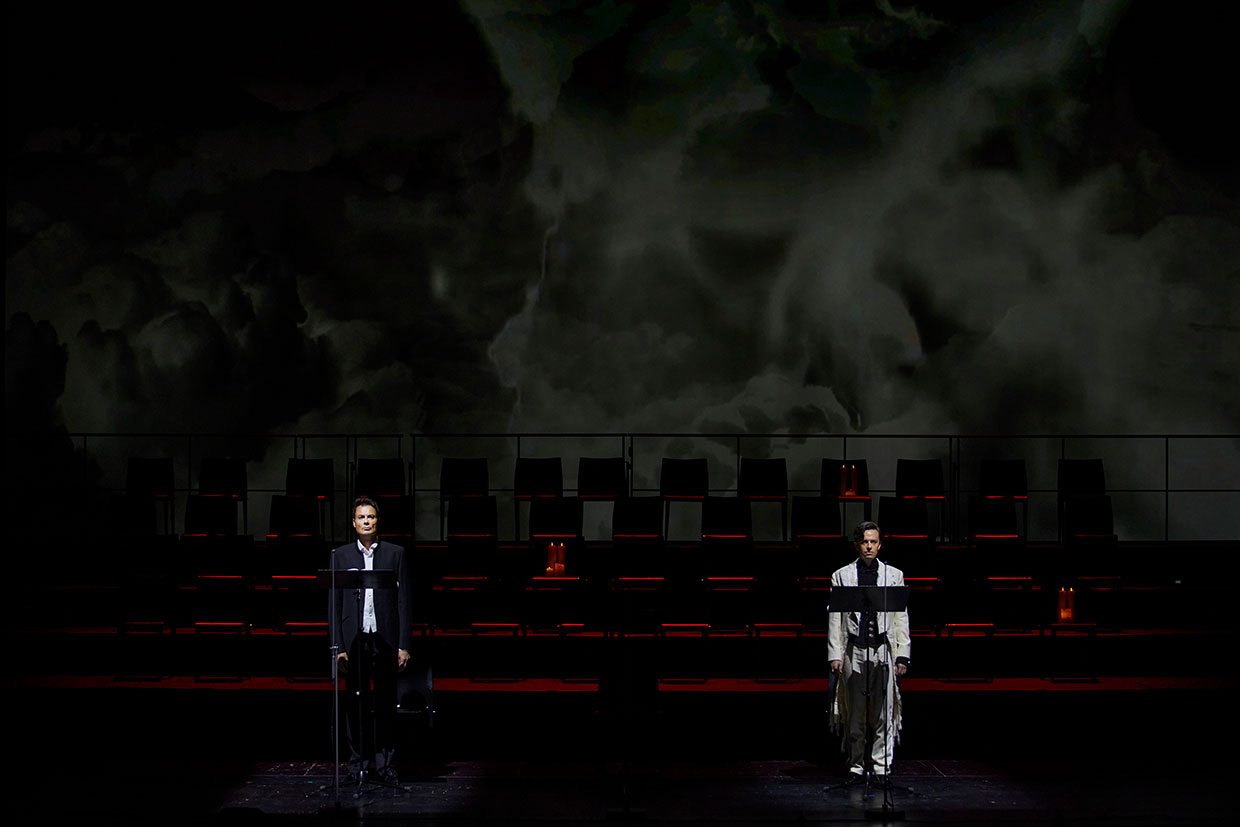
Opera
The Demon
Opera by Anton Rubinstein. A semi-staged performance
Saturday, 04/04/2020
07.30 PM - 10.15 PM
Premiere
19:00 Uhr Einführung
anschließend Premierenfeier
Opernhaus
Abo P
Aufgrund der erhöhten Corona-Virus-Ansteckungsgefahr und auf Anordnung der Bayerischen Staatsregierung muss diese Vorstellung leider ausfallen. Weitere Informationen finden Sie auf der Startseite unserer Webseite.
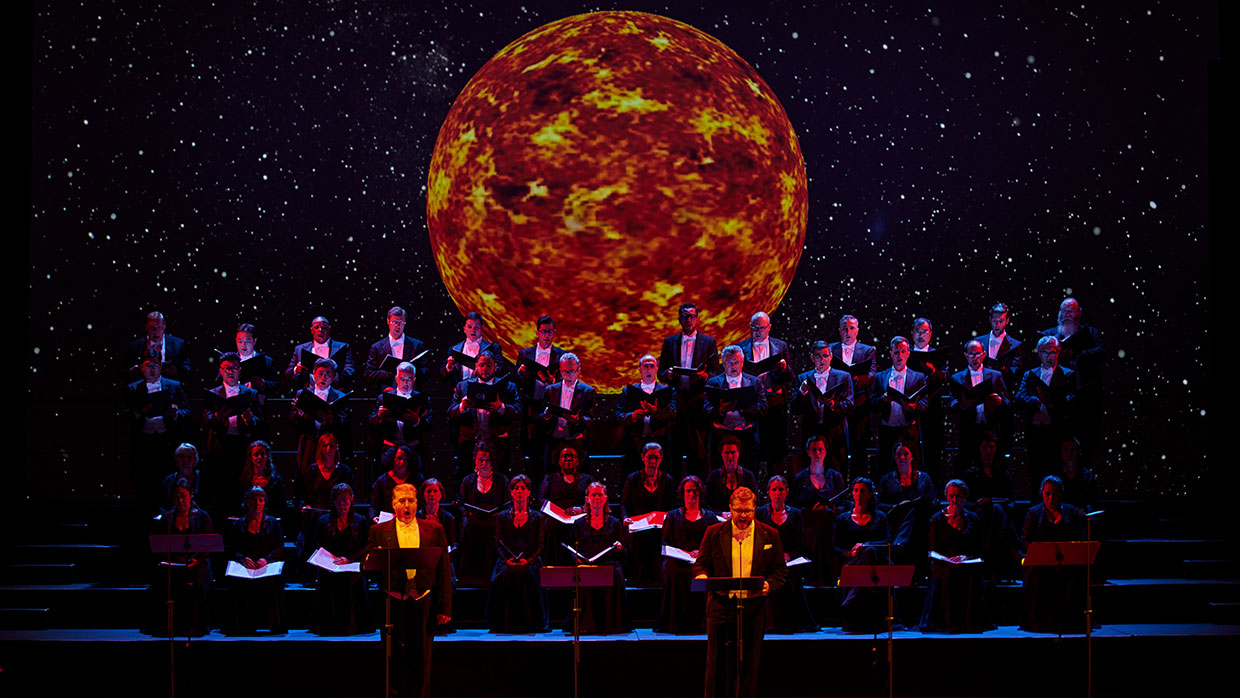
Libretto by Pavel Viskovatov and Apollon Maykov after Lermontov
In Russian with German and English surtitles
Premiere to be broadcast live on BR Klassik
His patron Franz Liszt and his student Pyotr Tchaikowsky are the bigger names today, but in the 19th century Anton Rubinstein was a canonical figure in European music – as pianist, teacher, reformer and composer. His fantastical opera “The Demon” was his greatest work, ticking many of the boxes that get the pulse of opera fans racing. A full-scale orchestra provides the punch, cantabile melodies make for extensive soloist roles and powerful choruses deliver vocal richness. Rubinstein also gives us ultra-romantic characters in the form of Tamara and the Demon, creating the Russian answer to “The Flying Dutchman”.
Description
Der Dämon, der das Böse in die Welt bringt, ekelt sich vor seiner Aufgabe. Er glaubt, dass nur eine stolze und freie Liebe ihn retten kann. Seine Wahl fällt auf Tamara, eine Fürstentochter. Obwohl der Dämon ihren Verlobten tötet und ihre zuvor friedliche Kinderwelt in Trümmer legt, ist Tamara fasziniert von diesem einsamen, traurigen und nach Erlösung suchenden Mann. Sie will ihn zum Guten zu bekehren und seine Seele vor der ewigen Verdammnis retten. Doch die Liebe zwischen der Frau und dem Geist kann sich nicht erfüllen, Tamara stirbt in seinen Armen. Nach ihrem Tod kämpfen Himmel und Hölle um ihre Seele.
Der Pianist, Dirigent und Komponist Anton Rubinstein (1829-1894) war eine der prägenden Gestalten im russischen Musikleben seiner Zeit und setzte sich als Künstler und Lehrer dafür ein, aktuelle musikalische Entwicklungen in Westeuropa in Russland heimisch zu machen. Auch als Komponist suchte er den Anschluss an die internationale Musikszene. So nutzt seine bekannteste Oper „Der Dämon“ von 1871/75 zwar ein russisches Kolorit, hat die musikalischen Zentren des damaligen Europa aber fest im Blick. Mit Tamara und dem Dämon stellte Rubinstein tief romantische Charaktere auf die Bühne und schuf eine russische Variante des Stoffs vom „Fliegenden Holländer“. In Russland gehört „Der Dämon“ bis heute zu den viel gespielten Nationalopern.
Team
Musikalische Leitung
Chorleitung
Dramaturgie
Dates and cast
Cast on 04/04/2020
Musikalische Leitung
Fürst Gudal
Tamara, seine Tochter
Fürst von Sinodal
Tamaras Amme
Alter Diener des Fürsten von Sinodal
Dämon
Engel
Orchester
Chor des Staatstheater Nürnberg
Chor
Extrachor des Staatstheater Nürnberg
Extrachor
March 2020
April 2020
- Sat, 04/04/2020, 07.30 pm
- Mon, 13/04/2020, 06.00 pm
- Sun, 19/04/2020, 03.30 pm
- Mon, 27/04/2020, 07.30 pm
- Thu, 30/04/2020, 07.30 pm
May 2020
Information on buying Tickets
Performance sold out on your desired date? Get on our waiting list and we’ll contact you if tickets become available for your chosen day! Here you can reach our ticket service.
Press reviews
Nürnberger Nachrichten/Nürnberger Zeitung
„(...) Jochen Kupfer – ein fulminanter Interpret der Titelrolle (...) zwei Vorstellungen, die sich durchaus lohnen. (...) Lutz de Veer im Orchestergraben des Opernhauses ist ein Mann für die gewaltigen Klangentladungen dieses Geniekult-Stücks, dieser Musik zwischen Klangschönheit und Fortissimo-Eindringlichkeit, in die auch der Chor in wechselnden Rollen stimmgewaltig einbezogen ist.“
Uwe Mitsching, Nürnberger Nachrichten/Nürnberger Zeitung
Donaukurier
„Selbst wenn Rubinstein den vom Böse-Sein verschatteten Protagonisten mit Woodblocks-Schlägen und fallenden Streicher-Linien ankündigt, gibt es für den exzellenten Kupfer viel edles Deklamationsmaterial und betörend schöne Ariosi. (...) Rund um die drei Hauptpartien stellte die Oper Nürnberg vor den – wie oft in der russischen Oper – prachtvoll eingesetzten Chor und Extrachor eine Gruppe kompetenter Solisten. (...) Insgesamt eine packend stimmige Besetzung für ein außerordentliches Werk, die üppig und intelligent modellierende musikalische Leitung von Lutz de Veer und Grund also zu ganz viel Jubel.“
Roland H. Dippel, Donaukurier
> What's On
> Digitaler Fundus
Top


